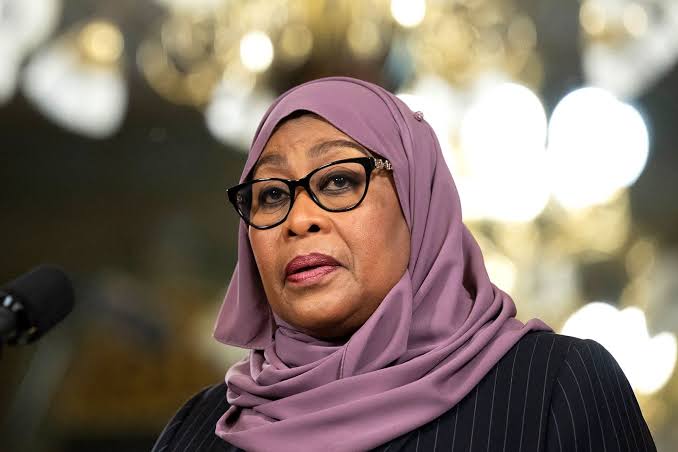President Samia Suluhu Hassan of Tanzania has firmly called on Western countries to refrain from meddling in the country’s internal affairs, emphasizing that Tanzania has a robust constitution and is capable of handling its own challenges. The president’s statements came during the 60th anniversary celebration of the Tanzanian Police Force, where she responded to concerns raised by foreign diplomats regarding the recent murder of opposition figure Ali Mohamed Kibao.
President Hassan expressed frustration over the criticism, urging foreign diplomats stationed in Tanzania to respect the Vienna Convention on Diplomatic Relations (1961), which outlines the responsibilities of diplomats and the need for non-interference in the domestic affairs of sovereign nations. She underscored that Tanzania’s institutions are capable of managing its internal affairs, including the ongoing investigation into Kibao’s murder.
The Murder of Ali Mohamed Kibao
Ali Mohamed Kibao, a prominent member of the opposition Chadema party, was killed in early August under mysterious circumstances. According to Chadema’s chairman, Freeman Mbowe, Kibao was abducted by two armed men while on a bus traveling to the northeastern port city of Tanga. His body was discovered the following day, leading to widespread concern both within Tanzania and among the international community.
In response to the incident, diplomats from the United States, the European Union, the United Kingdom, and Canada released a joint statement condemning the murder. The statement called for an immediate and thorough investigation, arguing that the killing undermines democratic principles and the constitutional rights of Tanzanian citizens.
The U.S. Embassy issued a particularly strong statement, saying, “Murder and disappearances, as well as last month’s detentions, beatings, and other efforts to disenfranchise citizens ahead of elections, should have no place in democracy. These brutal acts undermine rights guaranteed by the Tanzanian constitution.”
President Hassan’s Response
President Hassan, however, seemed perplexed by the international response to Kibao’s death, questioning why such incidents attract global attention while other tragedies, such as the killing of children and albinos in Tanzania, often go unnoticed by foreign entities. “It is surprising that this death has sparked condemnation,” she said, urging that all lives should be equally valued and tragedies universally condemned.
The president also expressed concern that diplomats might have overstepped their roles, suggesting that their statements may not reflect the official positions of their respective governments. She indicated her intention to address the matter directly with the heads of state, rather than through diplomatic channels.
“We’re not here to be told how to run our country,” President Hassan stated emphatically. “We have sworn to protect the security of Tanzania and defend the constitution of Tanzania, and we will do everything possible to enhance the protection and security of Tanzania because it is our responsibility, and on this responsibility, we need no direction from anyone.”
Investigations Underway
Despite the political tensions, President Hassan reassured the nation and international observers that the Tanzanian government is committed to conducting a thorough investigation into Kibao’s murder. She stressed that while the government welcomes constructive dialogue, it will not tolerate external interference in the country’s affairs. The president reiterated her commitment to upholding the rule of law and ensuring justice for all Tanzanian citizens.
In her concluding remarks, President Hassan pointed out that Tanzania has handled similar incidents in the past without international involvement, and she expects the same respect in this case. “When such incidents occur, we do not send our diplomats to issue statements,” she remarked.
As the investigation continues, the Tanzanian government remains under close scrutiny from both domestic and international observers, with the hope that justice will be served without undermining the country’s sovereignty.
